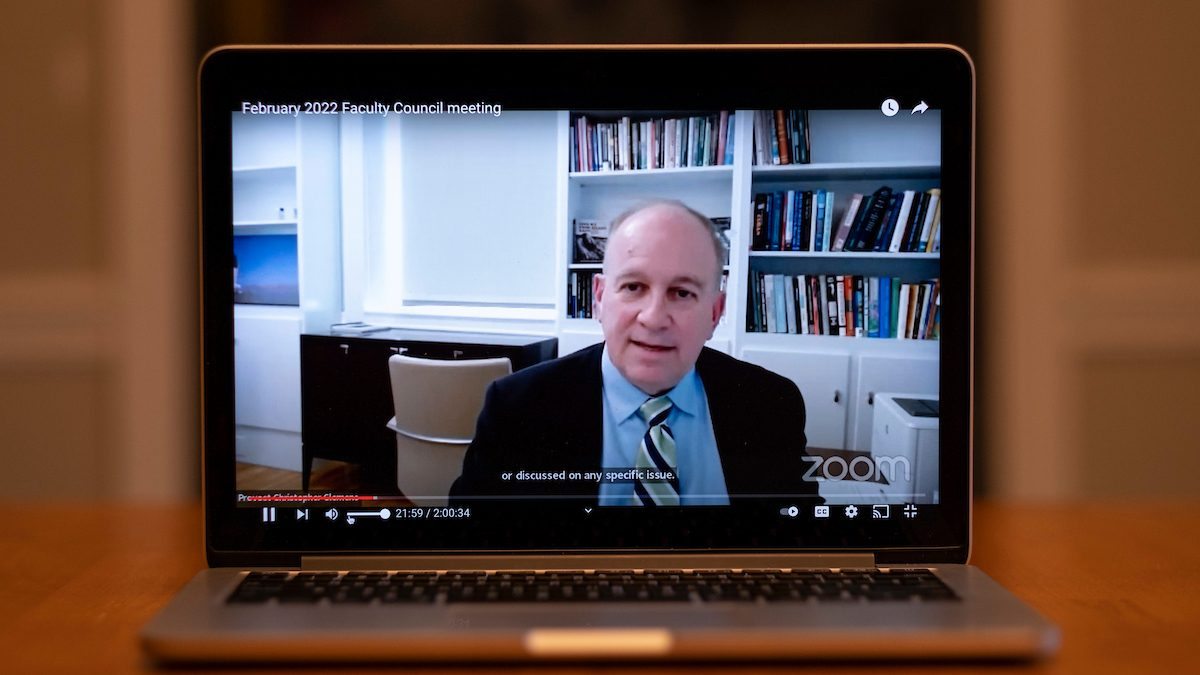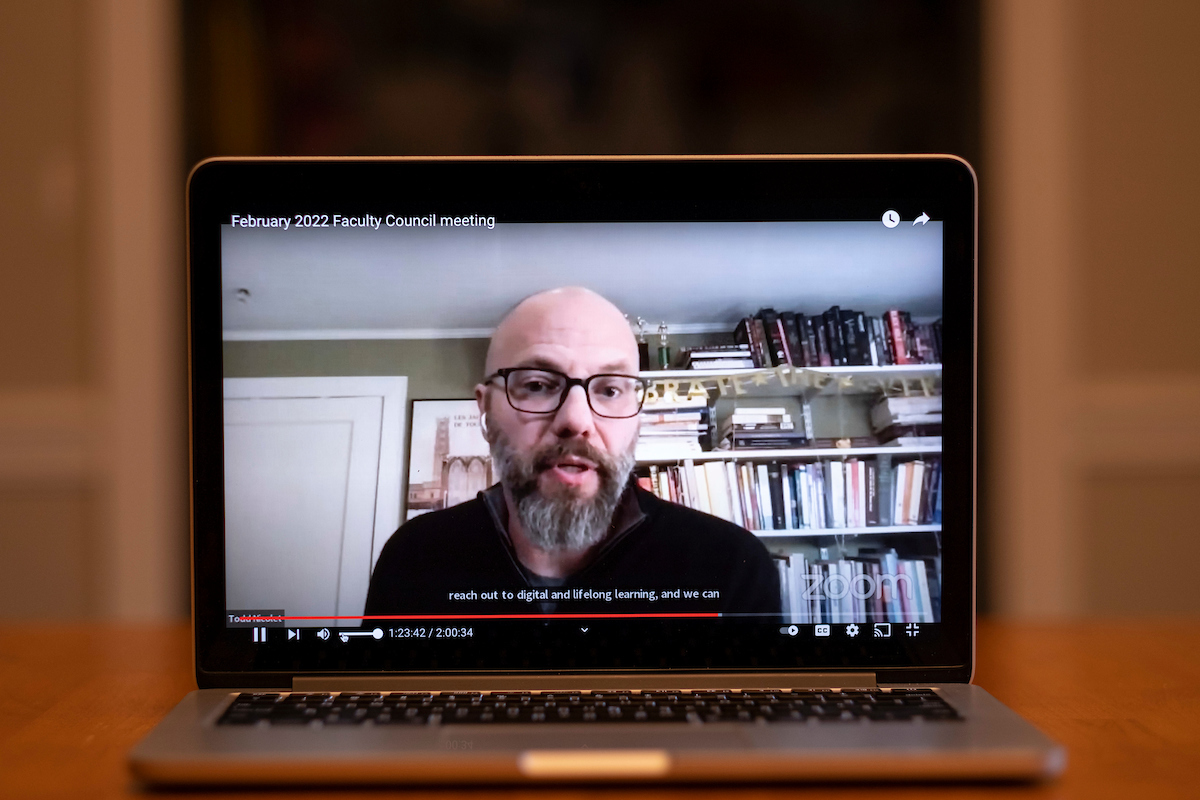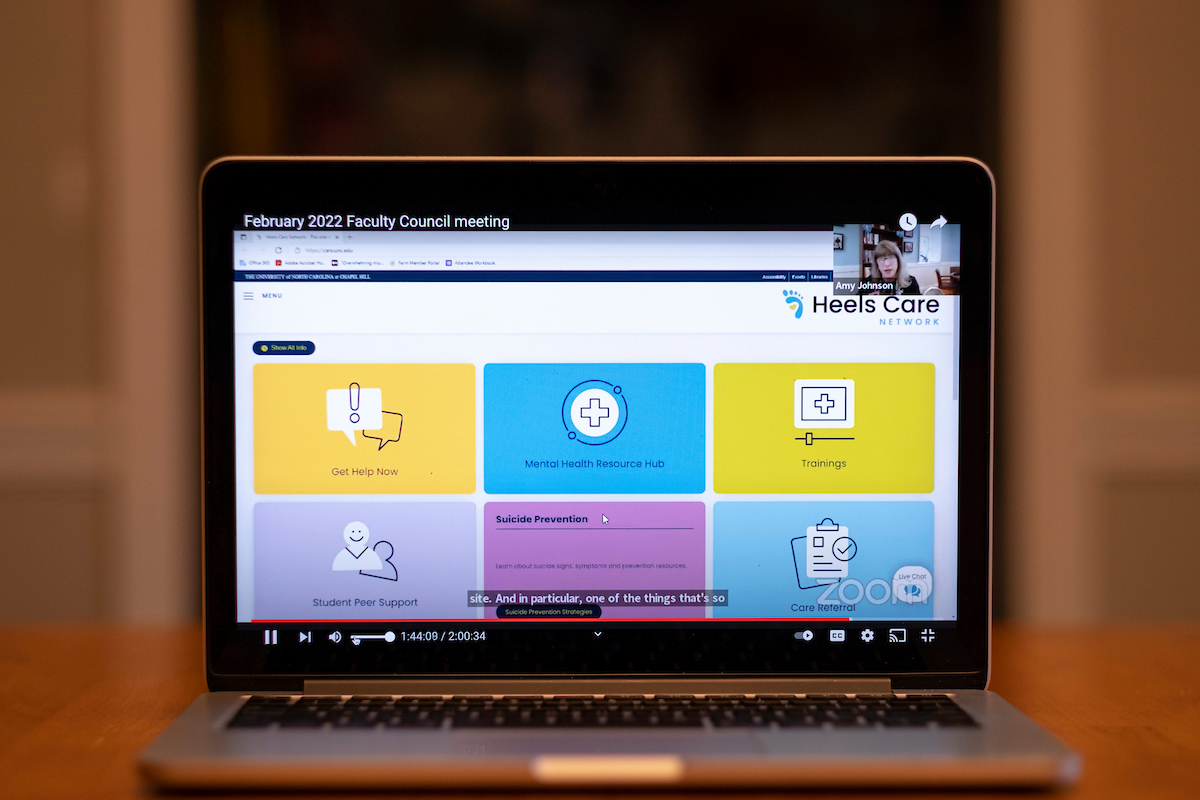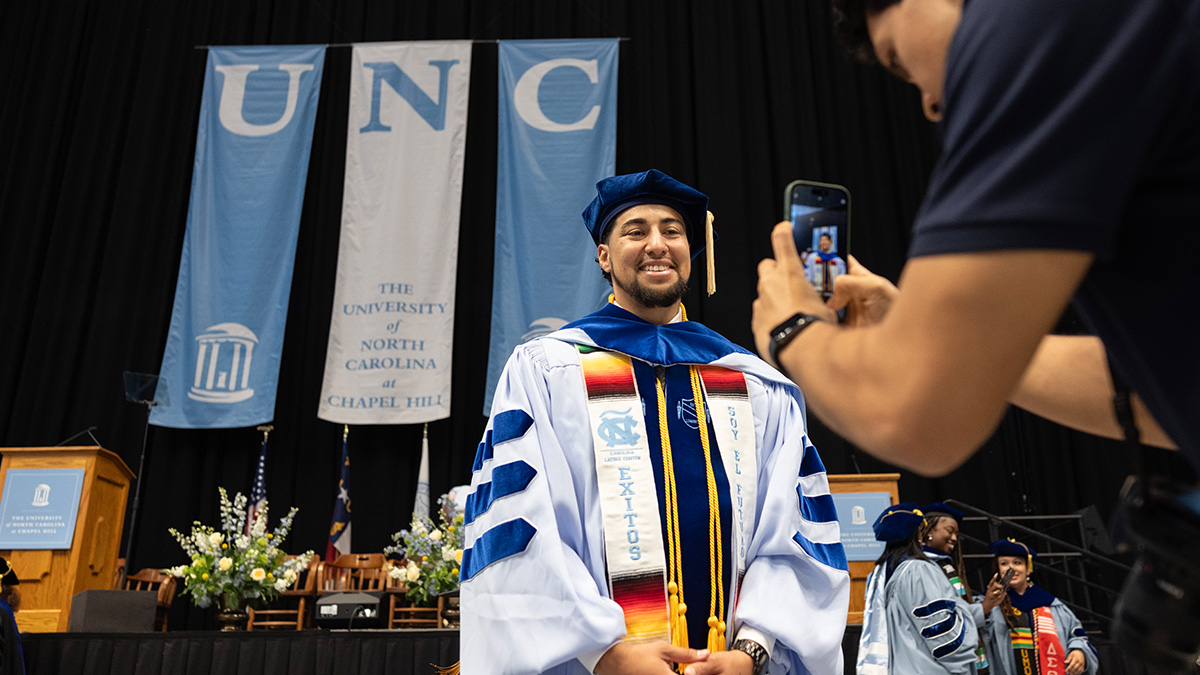‘Advocate in Chief’ Chris Clemens addresses faculty
In his first presentation to faculty as provost, Clemens talked about focusing on his role as chief academic officer and promoting faculty advancement.

Provost Chris Clemens has symbolically dropped the “executive vice chancellor” part of his job title, he said in his remarks at the Feb. 11 joint meeting of Faculty Council and the General Faculty.
“We want to recenter the provost’s office around the dual roles of chief academic officer for the University and advocate in chief for our University’s academic community,” Clemens said. The change includes establishing better ways to solicit ideas from campus and to support nominations of faculty members for prestigious awards and national academies.
“I believe our faculty are fully worthy to have as many national academy memberships and awards as other places, yet our numbers are smaller. We don’t have the organizational attention to that nomination process,” he said. Putting in the work does produce results, he added, pointing out the naming of three biology faculty members to national academies last year.
Merit raises
Chancellor Kevin M. Guskiewicz had an update on merit raises, extra pay for employees beyond the recent 2.5% raise and the $1,000 bonus funded by the legislature. A “small pool” made available through the University’s first balanced budget will enable some merit pay increases, Guskiewicz said. Deans and vice chancellors have already submitted these as part of unit budgeting requests and those approved will be paid in March.
Still masking
In his COVID-19 update, outgoing Executive Vice Provost Ron Strauss said that the number of cases continues to go down, with only 25 cases (19 students and four employees) reported the previous day.
“But this is not the moment to declare any kind of victory,” Strauss said, indicating his concern about the new BA.2 omicron subvariant and its high transmissibility. “Let’s keep masking, getting vaccinated and boosted.”

Vice Provost Todd Nicolet explains Project Kitty Hawk to faculty. (Jon Gardiner/UNC-Chapel Hill)
Project Kitty Hawk
Todd Nicolet, vice provost of digital and lifelong learning, spoke to the faculty about Project Kitty Hawk. The UNC System announced the new nonprofit to provide a platform for online programs in November, and it received $97 million in funding in the state legislature’s most recent budget.
Project Kitty Hawk will address:
- Difficulties in access posed by the COVID-19 pandemic.
- A state goal to have 2 million North Carolinians with a degree or high-quality credential by 2030.
- The need to reach more working adults as the number of traditional college-age students declines or levels off over the next decade.
Project Kitty Hawk will be one of three options the University has for putting courses online, Nicolet said, joining Digital and Lifelong Learning and 2U, the University’s partner in educational technology.
Nicolet encouraged faculty interested in creating online courses to contact his office first to explore the options. “We’re a coordinating presence, no matter what option,” he said.

Vice Chancellor for Student Affairs Amy Johnson shares her screen so faculty can see the new Heels Care Network website. (Jon Gardiner/UNC-Chapel Hill)
Mental health update
Vice Chancellor for Student Affairs Amy Johnson updated faculty on follow-ups to the daylong Mental Health Summit in November:
- Series of mental health seminars in the spring, including one on faith and spirituality on Feb. 28.
- Mental Health Colloquium, a half day focused on crisis services, prevention and culture coming in May.
- Heels Care Network, new website care.unc.edu that concentrates information about mental health resources and offers students live chat with trained peers.




